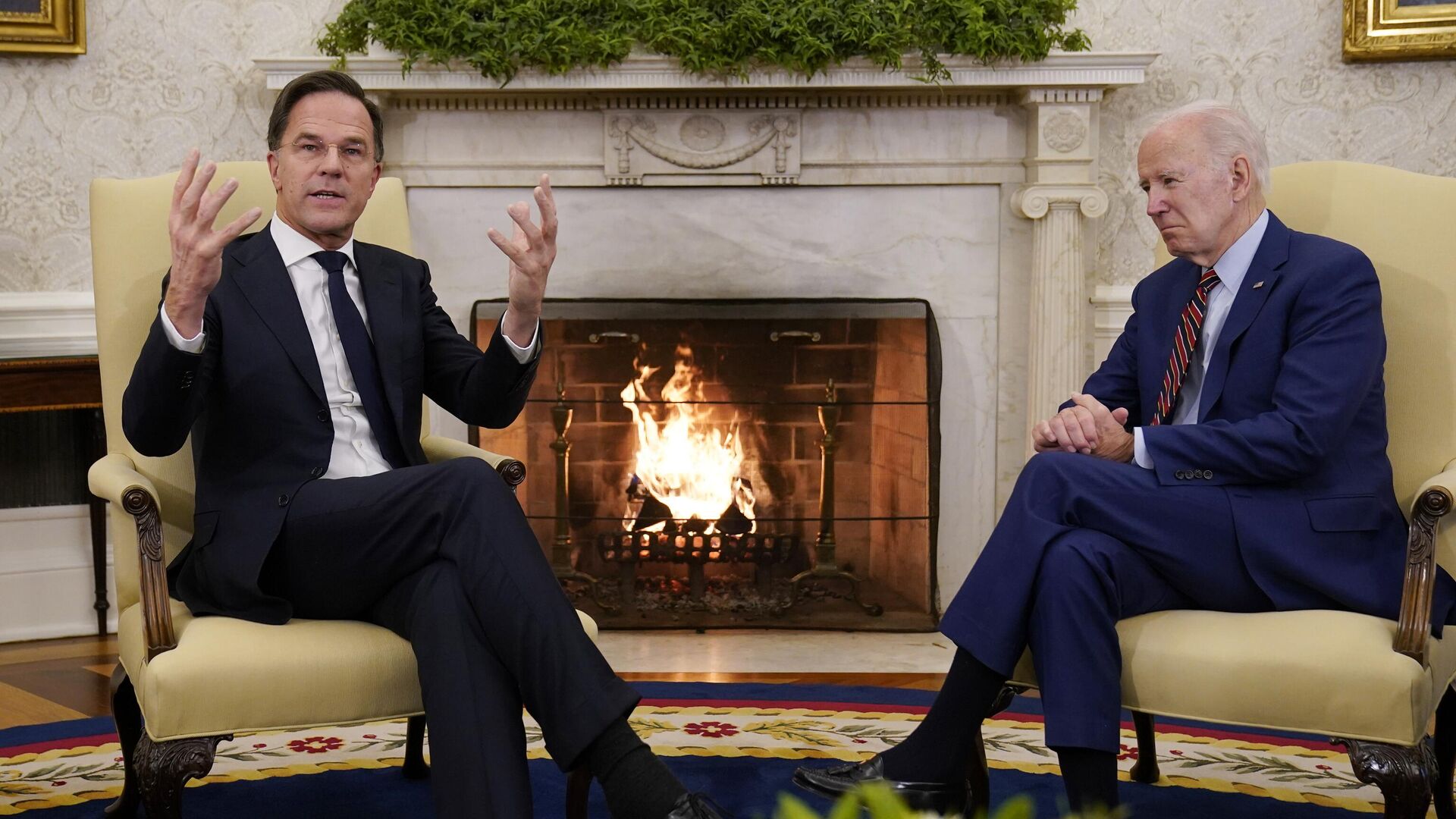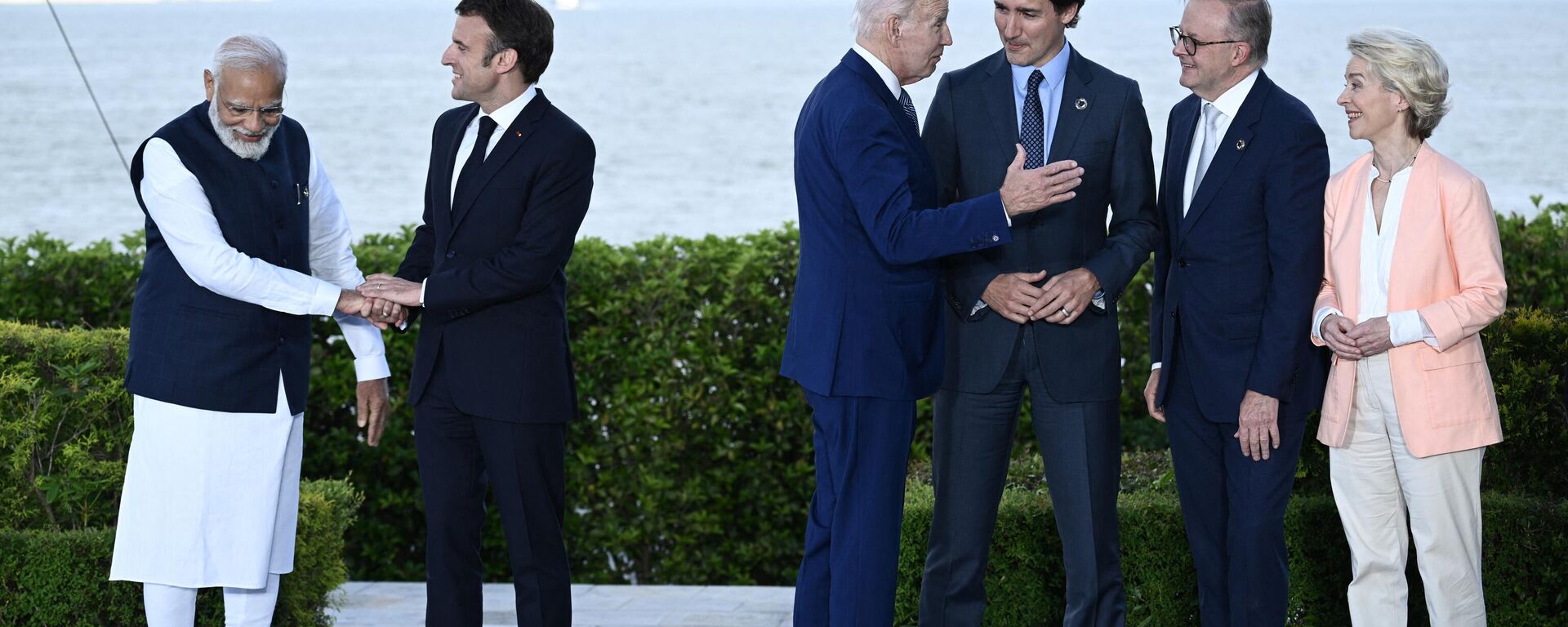https://sputniknews.in/20241002/why-asian-nato-is-not-an-option-for-india-8229783.html
Why 'Asian NATO' is Not an Option for India
Why 'Asian NATO' is Not an Option for India
Sputnik India
External Affairs Minister S Jaishankar has distanced India from new Japanese PM Shigeru Ishiba's idea of forming an "Asian NATO." "We don't have that kind of... 02.10.2024, Sputnik India
2024-10-02T17:05+0530
2024-10-02T17:05+0530
2024-10-02T20:27+0530
s. jaishankar
india
japan
us
indian air force (iaf)
quad
nato
ladakh
australia
us hegemony
https://cdn1.img.sputniknews.in/img/07e8/0a/02/8230996_0:160:3072:1888_1920x0_80_0_0_fea82341e9f27adee4588af16897af64.jpg
Japanese Prime Minister Shigeru Ishiba's plan to form an Asian version of the North Atlantic Treaty Organisation (NATO) is part the prospective security outlook, which also includes sharing US nuclear assets and revisions to Japan's anti-militarist post-war constitutional to "deter" China.Indian military pundits have expressed doubts over Ishiba's push to form a Nato-like ally.Jaishankar was very clear on the matter, Retired Indian Air Force Air Marshal M Matheswaran, President of Chennai-based think tank The Peninsula Foundation (TPF), told Sputnik India.Matheswaran described Ishiba's proposal to replicate the NATO, which is "viewed as a discredited military alliance, more so by non-Western countries", in Asia as "foolhardy".Japan was not "fully a sovereign state" but merely a "client state of the US" since the Second World War, the former air force officer argued.Some Japanese politicians have led efforts to "break out of the US stranglehold," Matheswaran noted, stressing that perceived attempts to alter Japan's constitution were unpopular with large sections of the electorate.Being part of a military alliance would have several "strategic disadvantages" for India, Retired Major General Shashi Bhushan Asthana, a Director at New Delhi-based think-tank the United Services Institution (USI) of India, explained in a conversation with Sputnik India.This was seen when smaller and middle European powers were forced to cut off their energy ties with Russia, which affected domestic inflation levels, he added.India's strategic positioning was unlike any other country in the world, and its strategic autonomy would be affected if it joined any alliance, the ex-general underlined.India had always seen the Ladakh border dispute with China as a "bilateral issue and remains reasonably convinced that it would have to be resolved between both of us", he highlighted.Referring to India's deepening bilateral defence coordination with Japan and recent high-level engagements, Asthana highlighted that New Delhi did share the same concerns about China with Tokyo."We are coordinating closely with Japan in the Quad framework. But Quad is not a military alliance such as AUKUS, not as of now," he said.He believes that India's participation in the Malabar maritime drills with its Quad partners, "sends out a strategic message to adversaries about the deepening interoperability and availability of operational assets in the Indo-Pacific."
https://sputniknews.in/20240705/asian-nato-us-trying-to-drag-india-into-bloc-rivalry-7787041.html
india
japan
us
ladakh
australia
indo-pacific
indian ocean
pacific ocean
south asia
southeast asia
ukraine
russia
Sputnik India
feedback.hindi@sputniknews.com
+74956456601
MIA „Rossiya Segodnya“
2024
Dhairya Maheshwari
https://cdn1.img.sputniknews.in/img/07e6/0c/13/138962_0:0:641:640_100x100_80_0_0_2cb44360dbcdf6d84bf4b299cd045917.jpg
Dhairya Maheshwari
https://cdn1.img.sputniknews.in/img/07e6/0c/13/138962_0:0:641:640_100x100_80_0_0_2cb44360dbcdf6d84bf4b299cd045917.jpg
News
en_IN
Sputnik India
feedback.hindi@sputniknews.com
+74956456601
MIA „Rossiya Segodnya“
Sputnik India
feedback.hindi@sputniknews.com
+74956456601
MIA „Rossiya Segodnya“
Dhairya Maheshwari
https://cdn1.img.sputniknews.in/img/07e6/0c/13/138962_0:0:641:640_100x100_80_0_0_2cb44360dbcdf6d84bf4b299cd045917.jpg
s. jaishankar, india, japan, us, indian air force (iaf), quad, nato, ladakh, australia, us hegemony, indo-pacific, indian ocean, pacific ocean, strategic deterrent, strategic autonomy, nuclear weapons, south asia, southeast asia, pivot to asia, ukraine, ukraine armed forces, russia, nato expansion, nato+
s. jaishankar, india, japan, us, indian air force (iaf), quad, nato, ladakh, australia, us hegemony, indo-pacific, indian ocean, pacific ocean, strategic deterrent, strategic autonomy, nuclear weapons, south asia, southeast asia, pivot to asia, ukraine, ukraine armed forces, russia, nato expansion, nato+
Why 'Asian NATO' is Not an Option for India
17:05 02.10.2024 (Updated: 20:27 02.10.2024) External Affairs Minister S Jaishankar has distanced India from new Japanese PM Shigeru Ishiba's idea of forming an "Asian NATO." "We don't have that kind of strategic architecture in mind... We have a different history and different ways of approaching [the issue]," Jaishankar told a Washington-based think tank on Tuesday.
Japanese Prime Minister Shigeru Ishiba's plan to form an Asian version of the North Atlantic Treaty Organisation (NATO) is part the prospective security outlook, which also includes sharing US nuclear assets and revisions to Japan's anti-militarist post-war constitutional to "deter" China.
Indian military pundits have expressed doubts over Ishiba's push to form a Nato-like ally.
Jaishankar was very clear on the matter, Retired Indian Air Force Air Marshal M Matheswaran, President of Chennai-based think tank The Peninsula Foundation (TPF), told Sputnik India.
"India's fundamental policy, from independence till date, is not to be part of any security alliance framework," Matheswaran said. "India will not join any power bloc as an ally. The only exception was in 1971, when India signed the Treaty of Peace, Friendship and Cooperation with Moscow in view of the threat to our security."
Matheswaran described Ishiba's proposal to replicate the NATO, which is "viewed as a
discredited military alliance, more so by non-Western countries", in Asia as "foolhardy".
"Many governments, overtly or covertly, hold NATO responsible for military interventions and wars and worsening the security milieu. In any case, India won't be part of such a system."
Japan was not "fully a sovereign state" but merely a "client state of the US" since the Second World War, the former air force officer argued.
Some Japanese politicians have led efforts to "break out of the US stranglehold," Matheswaran noted, stressing that perceived attempts to alter Japan's constitution were unpopular with large sections of the electorate.
"When the US wants to put out its views on security and alliances, it is seen as voicing these views through allies like Japan and Australia. The new Prime Minister [Shigeru Ishiba] seems to be more aligned with the American objectives than his predecessor," the expert remarked.
Being part of a military alliance would have several "strategic disadvantages" for India, Retired Major General Shashi Bhushan Asthana, a Director at New Delhi-based think-tank the United Services Institution (USI) of India, explained in a conversation with Sputnik India.
"The disadvantages of being part of an alliance framework have become quite visible in recent years," Asthana said. "If one considers the Ukraine conflict, European NATO allies have had to put their national interests on the back burner and toe the American line."
This was seen when smaller and middle European powers were forced to cut off their energy ties with Russia, which affected domestic inflation levels, he added.
India's strategic positioning was unlike any other country in the world, and its strategic autonomy would be affected if it joined any alliance, the ex-general underlined.
"India is surrounded by two nuclear armed neighbours and has border disputes with both of them," Asthana pointed out. "Under these circumstances, India would like to control its own escalation dynamics. If you are part of an alliance, your escalation dynamics would be controlled by your allies as well. That won't be the right strategic choice for India."
India had always seen the
Ladakh border dispute with China as a "bilateral issue and remains reasonably convinced that it would have to be resolved between both of us", he highlighted.
Referring to India's deepening bilateral defence coordination with Japan and recent high-level engagements, Asthana highlighted that New Delhi did share the same concerns about China with Tokyo.
"We are coordinating closely with Japan in the Quad framework. But Quad is not a military alliance such as AUKUS, not as of now," he said.
He believes that India's
participation in the Malabar maritime drills with its Quad partners, "sends out a strategic message to adversaries about the deepening interoperability and availability of operational assets in the Indo-Pacific."
"This level of coordination, without being part of a US-alliance framework, suits India's strategic interests. But we won't enter into an alliance," Asthana said.



